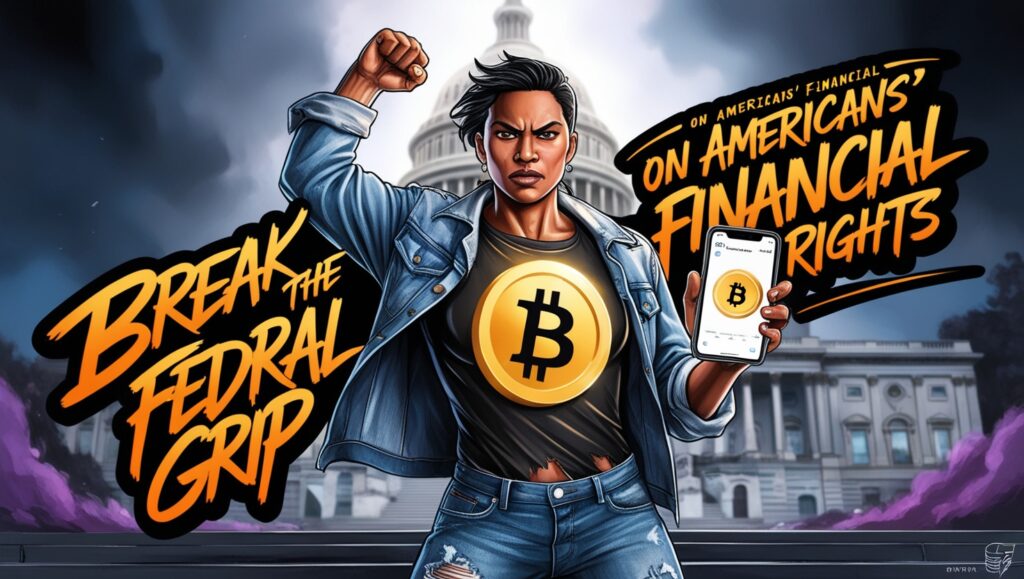The United States’ cryptocurrency policy is still a mess, despite the efforts of a few members of Congress. The majority of federal financial authorities, the Securities and Exchange Commission, and numerous members of Congress have been openly antagonistic toward cryptocurrencies for a long time.
But a lot of proponents of cryptocurrencies expect that this hostility would subside in light of some new initiatives. In recent weeks, U.S. suggestions to establish a bitcoin reserve have been made by Sen. Cynthia Lummis (R-WY), former President Donald Trump, and presidential contender Robert F. Kennedy Jr.
These kinds of recommendations are unlikely to change the dire situation of U.S. crypto policy, though. Nonetheless, they offer an ideal opportunity to have a deeper discussion on how to enhance crypto policy.
And it’s vital that Congress finds it.
With the help of cryptocurrency, customers can avoid using conventional third-party middlemen like banks and broker-dealers for new types of digital payments. Put another way, it permits the electronic movement of digital assets, including cash, from one person to another.
The idea of enabling people to use electronic funds transfers in methods that are similar to their traditional cash transactions shouldn’t raise any red flags, particularly in the United States. However, politicians have found it impossible to resist this trait and the potentially disruptive nature of cryptocurrency.
Certain individuals object to the fact that businesses in the conventional payments sector face competition from cryptocurrency. Its potential to undermine the current anti-money laundering system bothers some people. The reason this is such a major issue is that conventional financial institutions have been coerced by the federal government to function as law enforcement’s extension. Beyond these institutions, some opponents believe, the US dollar itself is under danger.
However, Congress can address these issues by keeping in mind two fundamental ideas that have formed the cornerstone of the US government. The threat of these challenges has made it challenging to design sound crypto policy.
The Fourth Amendment of the United States Constitution, which shields citizens from government searches and seizures without a warrant, is the subject of the first one. Regarding financial records held by Americans, Fourth Amendment protections have essentially been superseded by the Bank Secrecy Act and its several revisions. By using a bank or any other financial institution, Americans grant law enforcement warrantless access to their financial records under the BSA.
Several lawmakers would prefer to force cryptocurrency to conform to a system that was intended to function with financial intermediaries rather than allow it to evolve with the technology. However, cryptocurrency frequently subverts the conventional function of intermediaries, compelling Congress to address the ways in which it has circumvented the Fourth Amendment by using intermediaries.
The Fourth Amendment is currently seen by many members of Congress (as well as the financial sector) as a relic that is neither unduly oppressive nor an afterthought, irrelevant to contemporary America. However, the Fourth Amendment was never meant to be flawless. Rather, it symbolizes the inherently flawed equilibrium between the conflicting concerns of people’s financial confidentiality and the government’s capacity to get proof of criminal activity.
Congress should reaffirm the Fourth Amendment rights of Americans, but doing so would not be an excuse to conduct crimes. It would essentially mean that, similar to previous searches, government enforcement would have to show a judge that they have reasonable suspicion before gaining access to an American’s financial records.
People, not government officials, are typically the best arbiters of whether economic transactions are in their own best interests. This is the second concept, limited government. However, the federal government currently sets the guidelines for what payment methods are permissible, as well as which special institutions can process the payments and how they can run. Members of Congress who believe that cryptocurrencies are incompatible with the current political system even want them outlawed.
Limiting government is also a response to those who oppose cryptocurrency as a danger to the US dollar. For this reason—that governments tend to devalue currency—the federal government is not designed to be the source of Americans’ money. The United States government is tasked with preserving people’s freedom to utilize money anyway they see fit and not debasing their currency. The government isn’t meant to regulate every facet of peoples’ financial lives, including what they spend their money on.
Crypto critics falsely believe that the dollar standard is upheld by the government’s current monopoly on money issuance. When gold and silver were accepted as forms of payment, the U.S. dollar became more widely used. It is not dependent on any particular kind of paper money or digital entry. The US dollar is widely used because of the nation’s comparatively robust legal and economic frameworks, particularly with regard to safeguarding private property rights.
The federal government’s devaluation of the currency and disregard for limited government principles have left many crypto supporters angry. Money has essentially become a single option for Americans, and even the exchange of money between individuals is now heavily controlled and monitored.
It follows that the large number of cryptocurrency supporters who are applauding these reserve plans in the hopes that they will lead to a greater adoption of Bitcoin make sense. Unfortunately, these suggestions don’t deal directly with the fundamental issues that have caused the current state of U.S. crypto policy to be so chaotic.
Until Congress removes the excessively intrusive regulatory structure that now oversees the American financial markets, cryptocurrency will only be used in very limited circumstances. All Congress has to do to do this is to reiterate how important the Fourth Amendment and limited government are.








